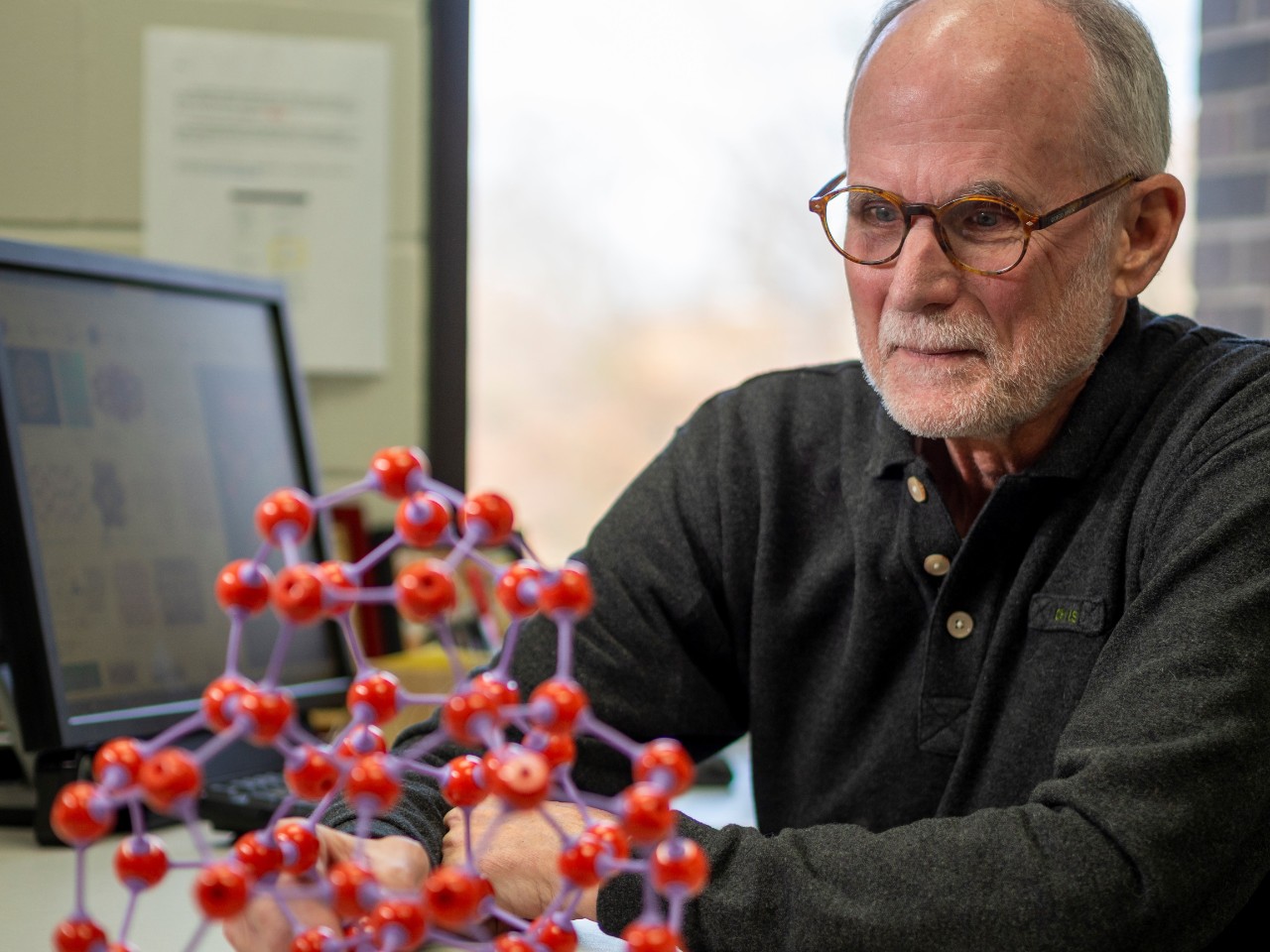
UC Clermont professor creates patent for breakthrough chemotherapy tech
Research could lead to more effective drug delivery for cancer patients
UC Clermont College chemistry Professor Cliff Larrabee has a lofty goal: to cure cancer. And with his latest research now pending patent, he is one step closer to that goal.
“I don’t know anyone who doesn’t know someone affected by cancer,” Larrabee said. “And for the students working with me in the lab, the research has contributed directly to a potential cancer treatment.”
Larrabee has worked with UC Clermont students on cancer research since 2009. Last summer, he submitted a patent with co-inventor and former student Mary Warmin, who is now the senior chemistry lab associate for the Science & Health Department. The patent is for a new nanocarrier targeted drug delivery system based on undecylenic acid — i.e., a more effective method of delivering chemotherapy drugs to cancer patients. Nanocarriers are even smaller than cells and help drugs dissolve in the blood and protect them from the body’s defense mechanisms.
The patent, which Larrabee and Warmin submitted through the University of Cincinnati’s Office of Innovation, was recently filed internationally.
“I would like to see cancer cured or at least tamed,” Larrabee said. “This patent application is the result of many years of hard work in UC Clermont’s labs and by our students.”
UC Clermont students have worked with Larrabee in his research lab on campus since 2009, with their stints sponsored by UC’s Women in Science and Engineering initiative and by the UC Office of Research. Over time, the college Dean’s Office began providing additional support, and today, students conduct research with Larrabee’s guidance through independent study and in teams. Twenty-one UC Clermont students have been involved in his research since the beginning of the program. He has also helped students pursue publication and present their research at a number of national and international conferences.
Larrabee believes the potential uses of the new technology could also deliver antibiotics to cancer tumors and possibly slow, or prevent metastasis.
“You can kill cancer stem cells with antibiotics,” Larrabee said. “And if you can kill them before they differentiate, maybe you can prevent metastasis.”
For anyone who has an idea with potential commercial impact, or who is interested learning more about UC’s Office of Innovation, visit innovation.uc.edu. To learn more about UC Clermont, visit ucclermont.edu.
Related Stories
There once was a biologist who talked to spiders …
July 9, 2025
UC biologist and spider expert Nathan Morehouse helped a writing collaboration at Kent University explore our common ground with these eight-legged creatures that fascinate us.
Murals boost Cincinnati’s vitality, community development
July 9, 2025
Murals have a social and economic impact, says a new study by Hyesun Jeong, assistant professor of urban design in UC's College of Design, Architecture, Art, and Planning.
Veterans urge mindfulness with fireworks
July 8, 2025
Spectrum News 1 and WCPO coverage of UC Veterans Programs & Services in conjunction with Independence Day. Interviews with UC's program director Terence Harrison and veteran-student Crystal Merino.
